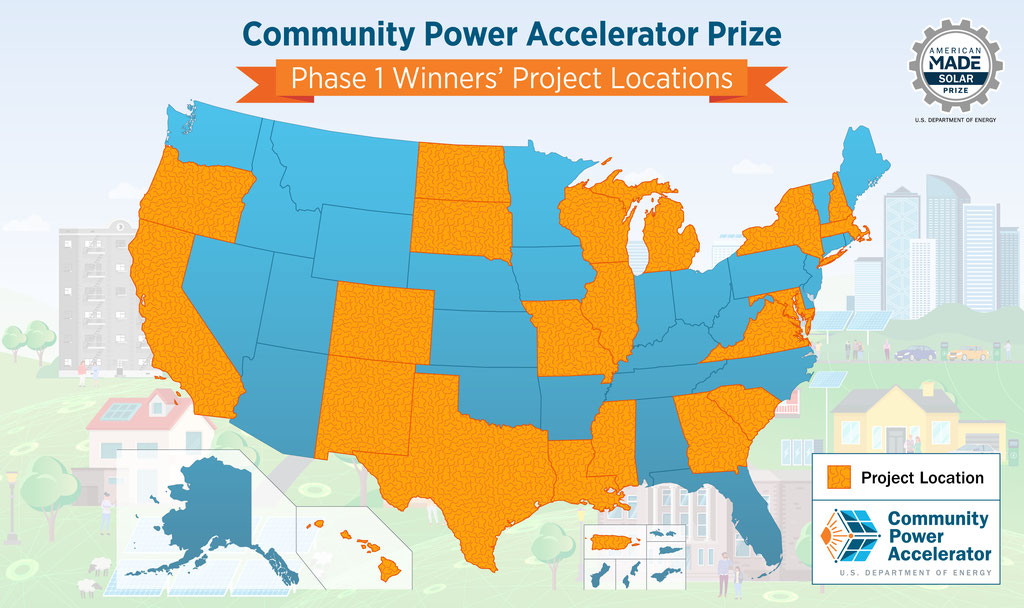The Community Power Accelerator Prize recently awarded 25 teams $50,000 and the opportunity to move on to Phase 2 of this prize. In Phase 1, winning teams were recognized as successful new and expanding community solar developers in the early stages of a community solar project development.
Now in Phase 2, competitors will receive direct coaching and mentorship to help them prepare their project to receive financing. All Phase 2 teams are also eligible to win a cash prize of $200,000 for completing the phase requirements.
Read more about the 25 teams moving on to Phase 2.
- 548 Energy Solutions, 548 Energy Solutions: Affordable Power for Chicago (Illinois)
- ADL Solutions LLC, Condo to the Farm (Illinois)
- AV3 Energy, Create a Path for Rural Missouri Towns to Go Solar (Missouri)
- Bonneville Environmental Foundation, Sunward: Building Community Energy Together, (Oregon)
- Climate Impact Capital Energy Holdings. LLC, Team Impact: Project Renew (Texas)
- Colorado Farm and Food Alliance, Thistle Whistle Farm + Community Agrivoltaics (Colorado)
- Community Through Colors, Vieques Microgrid (Puerto Rico)
- Cooperativa Hidroeléctrica de la Montaña, Mastering Microgrids in the Mountain (Puerto Rico)
- Energy Allies, Energy Allies Community Led Community Owned Solar (Massachusetts)
- Green Energy Justice Cooperative, Inc., Ready! Green Energy Justice Cooperative (Illinois)
- Groundswell Inc, Accelerating Community-Owned Community Power! (Washington, D.C.)
- Legacy Solar Wisconsin Cooperative, Legacy Solar Co-op (Wisconsin)

- Mana Pacific Inc, Hawaii's First 100% Community-Owned Solar Projects (Hawaii)
- North End Woodward Community Coalition, Solar Neighbors-Making the Motor City a Solar City (Michigan)
- Oregon Clean Power Cooperative, Oregon Clean Power Cooperative (Oregon)
- Orleans Parish School Board, Solar Investment for a Sustainable School District (Louisiana)
- People United for Sustainable Housing, Community Power Buffalo (New York)
- Rare Inc., Boston SHINE: Solar and Workforce Development (Massachusetts)
- SAGE Development Authority/ Standing Rock Sioux Tribe Renewable Energy Power Authority, Standing Rock Community Solar Project (North Dakota)
- Solar United National, LLC, Solar United National Empowers Communities (South Carolina)
- Son Solar Inc., Community Solar, Solar Jobs, Equity and Resilience (Mississippi)
- Sovereign Resiliency Partners, LLC, Community Solar for Native American Reservations (Massachusetts)
- SunShare, LLC, New Mexico Expansion (Colorado)
- The Resilience Education Training and Innovation Center Limited, RETI Center Local Power NYC (New York)
- UPROSE, UPROSE x Working Power Community Owned Solar (New York)
We look forward to what these teams will accomplish in Phase 2!

